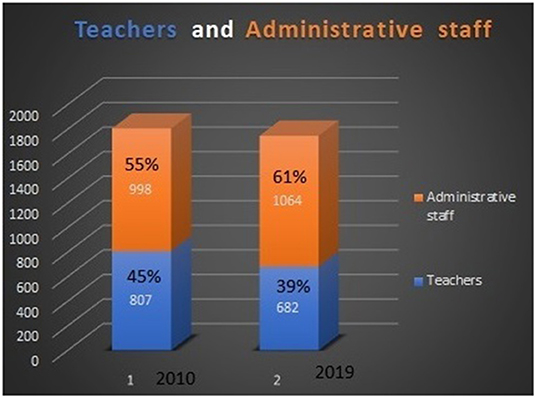CRISPR Technology Market Forecast 16.7% Growth Through 2033

Introduction
New York, NY – January 14, 2025 – The Global CRISPR Technology Market size is expected to be worth around US$ 15.0 Billion by 2033 from US$ 3.2 Billion in 2023, growing at a CAGR of 16.7% during the forecast period from 2024 to 2033. With a market share over 38%, North America held a strong lead in 2023, reaching US$ 1.2 Billion in revenue.
CRISPR (Clustered Regularly Interspaced Short Palindromic Repeats) technology is revolutionizing genetic research and therapeutic applications, offering unprecedented precision in genome editing. The global CRISPR Technology Market is experiencing significant growth, driven by advancements in healthcare, agriculture, and industrial applications. This growth is fueled by the rising prevalence of genetic disorders, increasing investments in biotechnology research, and the expanding use of CRISPR in drug discovery and development.
In 2023, North America dominated the market due to its robust healthcare infrastructure, significant research funding, and the presence of key players. Europe and Asia-Pacific are also witnessing rapid adoption, driven by supportive government initiatives and growing biotechnology sectors. Key players, including CRISPR Therapeutics, Editas Medicine, and Intellia Therapeutics, are actively developing innovative therapies for conditions like sickle cell anemia and cancer. Recent collaborations and funding activities further underline the market’s dynamic nature.
Despite its potential, challenges such as ethical concerns and regulatory complexities remain. However, ongoing advancements in delivery systems and increasing public awareness are expected to address these issues, supporting sustainable market growth. With CRISPR technology redefining possibilities across multiple sectors, the market is poised for transformative advancements, shaping the future of science and medicine.

Key Takeaways
- Market Size: The CRISPR Technology Market is projected to reach USD 15.0 billion by 2033, growing from USD 3.2 billion in 2023.
- Market Growth: The market is anticipated to expand at a CAGR of 16.7% from 2024 to 2033.
- Product Type Analysis: CRISPR-based products constituted 64% of the total market share in 2023.
- Application Analysis: Biomedical applications accounted for 45% of the market share in the CRISPR Technology Market.
- End-Use Analysis: Pharmaceutical and biopharmaceutical companies led market adoption, representing 42% of the market share.
- Regional Analysis: North America dominated the market, contributing 38% of total revenue in 2023.
Segmentation Analysis
- Product Type Analysis: CRISPR technology revolutionizes gene editing with 64% of the market share in 2023, showcasing its broad adoption. Its products support diverse uses in gene therapy, agriculture, pharmaceuticals, and research tools. Additionally, CRISPR-based services, including custom gene editing, screening assays, and bioinformatics, cater to specific needs of biotech and pharmaceutical companies, accelerating advancements in genetic research and therapeutic development.
- Application Analysis: Biomedical applications account for 45% of the CRISPR Technology Market in 2023. This technology is pivotal in gene therapy, precision medicine, disease modeling, and drug discovery. Researchers use CRISPR’s precise gene editing capabilities for targeted treatment of genetic disorders, cancer, and infectious diseases. Its transformative potential is also evident in agriculture, where CRISPR helps develop crops with improved yield, nutritional value, and resilience to pests and environmental stress.
- End-User Analysis: Pharmaceutical and biopharmaceutical companies lead CRISPR technology adoption with a 42% market share in 2023. They leverage CRISPR for drug discovery, target identification, and preclinical research, expediting innovative therapeutics. Biotechnology companies adopt CRISPR for agricultural biotechnology, industrial bioprocessing, and healthcare innovations. Academic and research institutions contribute by exploring gene functions and pioneering CRISPR applications, fostering innovation and shaping the future of genetic therapies.
How Artificial Intelligence (AI) is Changing the CRISPR Technology Market?
Artificial Intelligence (AI) is significantly enhancing the CRISPR technology market by improving the precision and efficiency of gene editing. AI algorithms analyze extensive genomic datasets to identify optimal CRISPR targets, thereby increasing specificity and reducing off-target effects. This integration accelerates the development of CRISPR-based therapies for genetic disorders, cancer, and infectious diseases.
In agriculture, AI-driven CRISPR applications facilitate the creation of crops with enhanced yield, nutritional value, and resilience to environmental stressors. By predicting the most effective gene edits, AI expedites the development of improved plant varieties, contributing to food security and sustainable farming practices.
Furthermore, AI aids in the discovery of novel CRISPR-associated proteins and the design of more efficient gene-editing tools. By processing large-scale genomic information, AI uncovers patterns and relationships that inform the engineering of advanced CRISPR systems, broadening the scope of genetic research and its practical applications. The convergence of AI and CRISPR technology is poised to drive significant advancements in biotechnology, medicine, and agriculture, offering innovative solutions to complex genetic challenges.
Market Dynamics
- Driver: The CRISPR technology market is propelled by its transformative potential in treating genetic disorders. Researchers have successfully edited disease-causing mutations in blood-forming cells, indicating the possibility of long-lasting or curative treatments for conditions like sickle-cell disease. This capability to precisely modify genes positions CRISPR as a pivotal tool in developing therapies for numerous genetic diseases that currently lack effective treatments.
- Trend: Advancements in CRISPR technology are expanding its applications beyond monogenic disorders. Research is exploring its use in treating complex conditions such as blindness and protein-folding disorders. Additionally, efforts are underway to enhance delivery methods, like enveloped delivery vehicles (EDVs), to target specific cells more efficiently. These developments indicate a broadening scope for CRISPR-based interventions in various medical fields.
- Restraint: The clinical development of CRISPR-based therapies faces challenges due to a lack of precedent in the cell and gene therapy industry. Regulatory frameworks are still evolving, making the approval process complex. Additionally, ensuring the safety and efficacy of CRISPR interventions requires extensive research, which can delay the availability of these therapies to the public.
- Opportunity: CRISPR technology offers significant opportunities in agriculture by enabling the development of crops with enhanced traits. Scientists are utilizing CRISPR to create genetically modified crops with increased yield, improved nutritional content, and resilience against environmental stressors. This application contributes to sustainable farming practices and addresses global food security challenges, highlighting the versatility of CRISPR beyond medical applications.
Emerging Trends in CRISPR Technology
- Enhanced Delivery Methods: Researchers are focusing on improving how CRISPR components are delivered to specific cells. Current methods, while effective, often lack precision and efficiency. New delivery systems, such as viral vectors and nanoparticle-based techniques, are being developed to overcome these challenges. These advancements aim to enhance the accuracy of gene editing and reduce off-target effects. Improved delivery mechanisms are essential for expanding the scope of CRISPR-based therapies. They also play a critical role in enabling safe and effective treatment for genetic disorders, cancers, and other diseases.
- Broadening Therapeutic Applications: CRISPR technology is evolving beyond single-gene disorders. Researchers are now using it to address complex medical conditions, including blindness and protein-folding diseases. This expansion opens new possibilities for precision medicine and personalized therapies. By targeting multiple genes or complex pathways, CRISPR can provide innovative solutions for conditions that were previously difficult to treat. Such advancements could revolutionize healthcare, offering hope to millions of patients. The growing application of CRISPR highlights its potential to transform medicine and improve lives globally.
- Agricultural Innovations: In agriculture, CRISPR is enabling scientists to create crops with superior traits. These include higher yields, better nutritional content, and greater resilience to environmental stressors. By editing plant genomes, researchers can address challenges like pests, diseases, and climate change. For example, CRISPR has been used to develop drought-resistant crops, ensuring food security in water-scarce regions. This technology is also reducing the need for harmful pesticides and fertilizers. By promoting sustainable farming practices, CRISPR is helping to build a more resilient and eco-friendly agricultural system.
Use Cases of CRISPR Technology
- Treatment of Genetic Disorders: CRISPR-based therapies are transforming the treatment of genetic diseases. In clinical trials, CRISPR has demonstrated success in addressing conditions like sickle cell disease. For example, a patient treated with CRISPR technology experienced a significant reduction in disease symptoms, offering hope for long-term solutions. This technology enables precise editing of faulty genes, correcting mutations at their source. By targeting the root cause of diseases, CRISPR provides a path to potentially curative therapies. Its application in treating rare and inherited disorders continues to grow, revolutionizing healthcare for many.
- Agricultural Enhancements: CRISPR is driving advancements in agriculture by creating genetically improved crops. Scientists are using this technology to make plants more resistant to pests and diseases, which helps increase crop productivity. Additionally, CRISPR is enabling the development of crops that can withstand harsh environmental conditions, such as drought and extreme temperatures. This innovation addresses food security challenges and supports sustainable farming practices. By reducing reliance on chemical pesticides and fertilizers, CRISPR contributes to eco-friendly agricultural solutions, improving yield and nutritional value.
- Research Applications: CRISPR is a powerful tool in medical research, particularly for studying human diseases. It allows scientists to create precise animal models that mimic specific genetic conditions. These models are invaluable for understanding disease mechanisms and testing potential treatments. Researchers also use CRISPR to identify and validate drug targets, accelerating the development of new therapies. This technology is reshaping biomedical research by enabling more accurate and efficient experiments, leading to groundbreaking discoveries in genetics and medicine.
Conclusion
CRISPR technology is revolutionizing genetic research and applications, driving significant advancements across healthcare, agriculture, and industrial sectors. The market, valued at USD 3.2 billion in 2023, is expected to grow at a CAGR of 16.7%, reaching USD 15.0 billion by 2033. North America leads market adoption, while Europe and Asia-Pacific exhibit strong growth potential. Biomedical and agricultural applications dominate, supported by innovations in delivery systems, AI integration, and expanding therapeutic use cases.
Challenges include regulatory and ethical concerns, yet ongoing advancements promise sustainable growth. CRISPR’s transformative potential in gene editing, disease treatment, and crop improvement positions it as a pivotal technology shaping the future of science, medicine, and sustainable solutions for global challenges.
Discuss your needs with our analyst
Please share your requirements with more details so our analyst can check if they can solve your problem(s)

link






